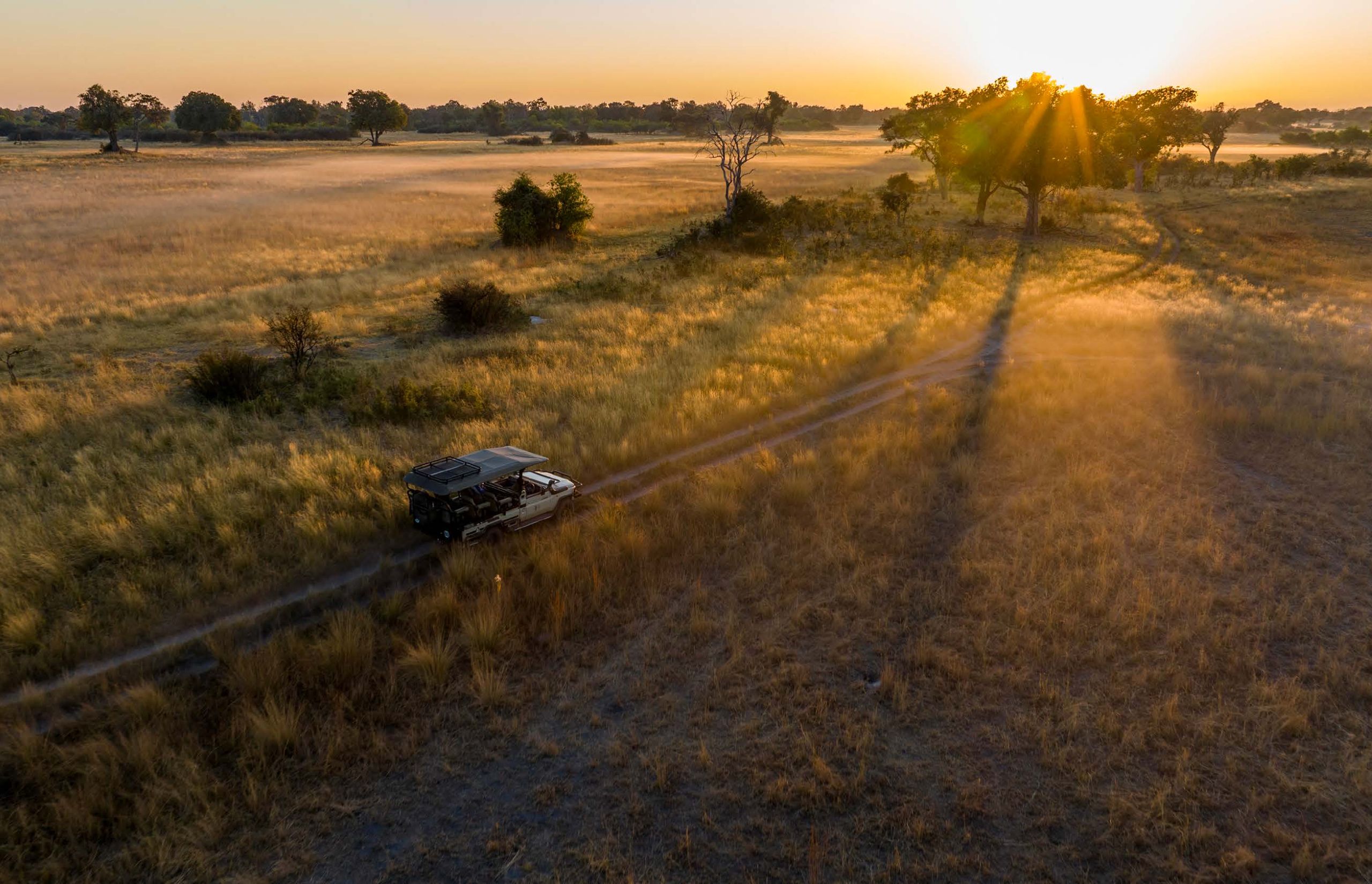
Botswana
Forget thread counts and smart room technology, in Botswana true luxury is about connecting with nature in perfect seclusion
I only notice the bushbuck when I’m a few metres away. She’s quietly foraging in the damp leaf litter just below the boardwalk leading to my cabin, and the flecks of sunlight piercing the tree canopy perfectly match the white spots on her tan coat, making her almost invisible. Abruptly she looks up, considers me for a moment with soft-lashed black eyes, then darts into the forest.
I cross my room, step out onto the private deck, and promptly disturb three warthogs grazing underneath. Startled, they scurry towards the river, tails held jauntily aloft like flags at a parade.
All this, and I haven’t even left the camp yet.
These close encounters are hardly surprising, of course: this is Botswana – specifically the sensational Okavango Delta – a pristine and almost completely undeveloped wilderness that’s considered one of the world’s top wildlife-spotting destinations (and has the UNESCO stamp to prove it). Its 16,000 square kilometres of national reserves and private concessions are a patchwork of marshlands, waterways and woods, home to some of the world’s most endangered animals, including cheetahs, lions, wild dogs and rhinos.
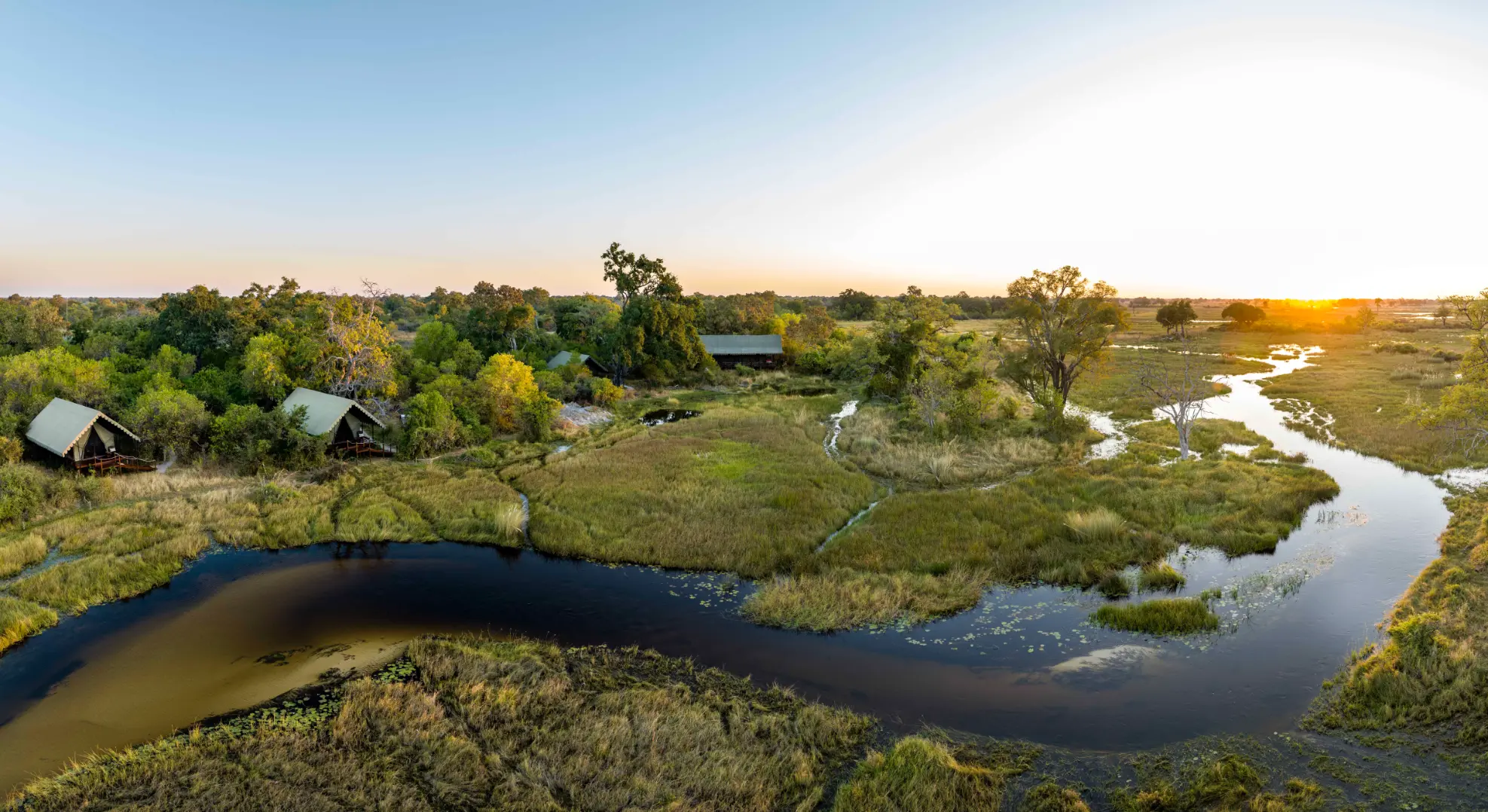
A natural connection
I’m staying in Ker & Downey’s elegant Okuti Camp in the heart of the largest protected area, Moremi Game Reserve. Covering almost a third of the Delta, this vast natural haven couldn’t feel further removed from my normal life on London’s streets – sun-dappled woodland humming with iridescent birds, and meandering channels patrolled by snorting hippos who open their mouths wide as we drift past, displaying threatening brown canines.
In this endless environment I feel released; the damp weight of city life, that I hadn’t noticed I was carrying, suddenly lifted. I miraculously transform from night owl to early bird, springing out of bed at 5am eager to catch the worm – or rather, some much larger animals.
We explore in safari-adapted Land Cruisers, bouncing along rutted tracks and past sculptural termite mounds, with commentary from expert guides who know how to read the trace of a hyena’s paw in the sandy track or recognise the barking alarm of a baboon when a leopard is on the prowl.
One morning we spend twenty minutes watching a troop of vervet monkeys nursing tiny babies, and later that day we’re surrounded by a dozen lions, who stretch and yawn just metres from our open-sided car. One of my fellow guests is concerned about becoming lunch, but our guide Jonah reassures her. “They see the car and the people inside as one object,” he explains. “So as long as you stay inside the vehicle, they won’t notice you.” I buy this explanation at first, until one lioness locks eyes with me, her amber gaze penetrating my soul in way that feels far too personal to be a disinterested accident.
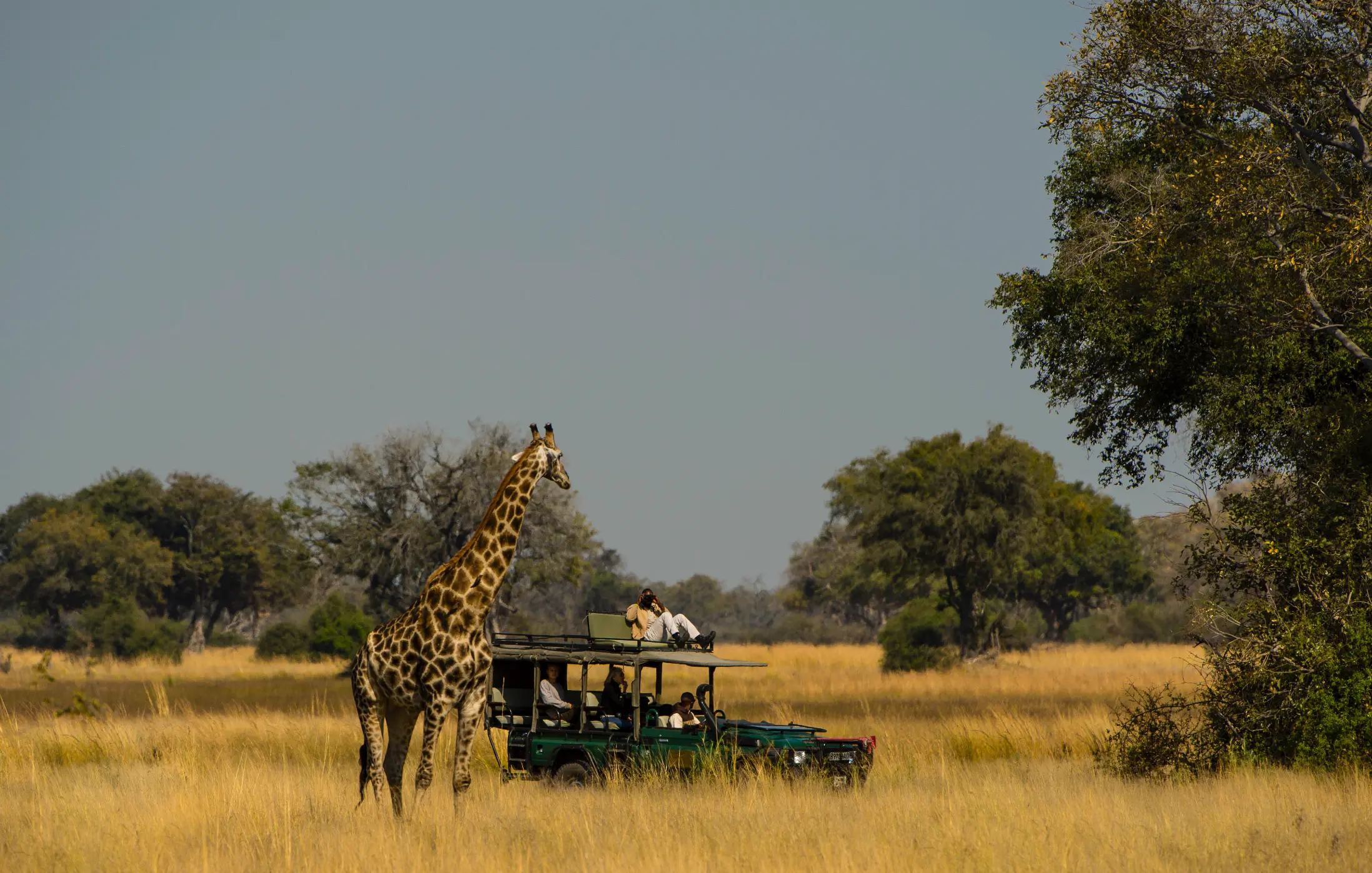
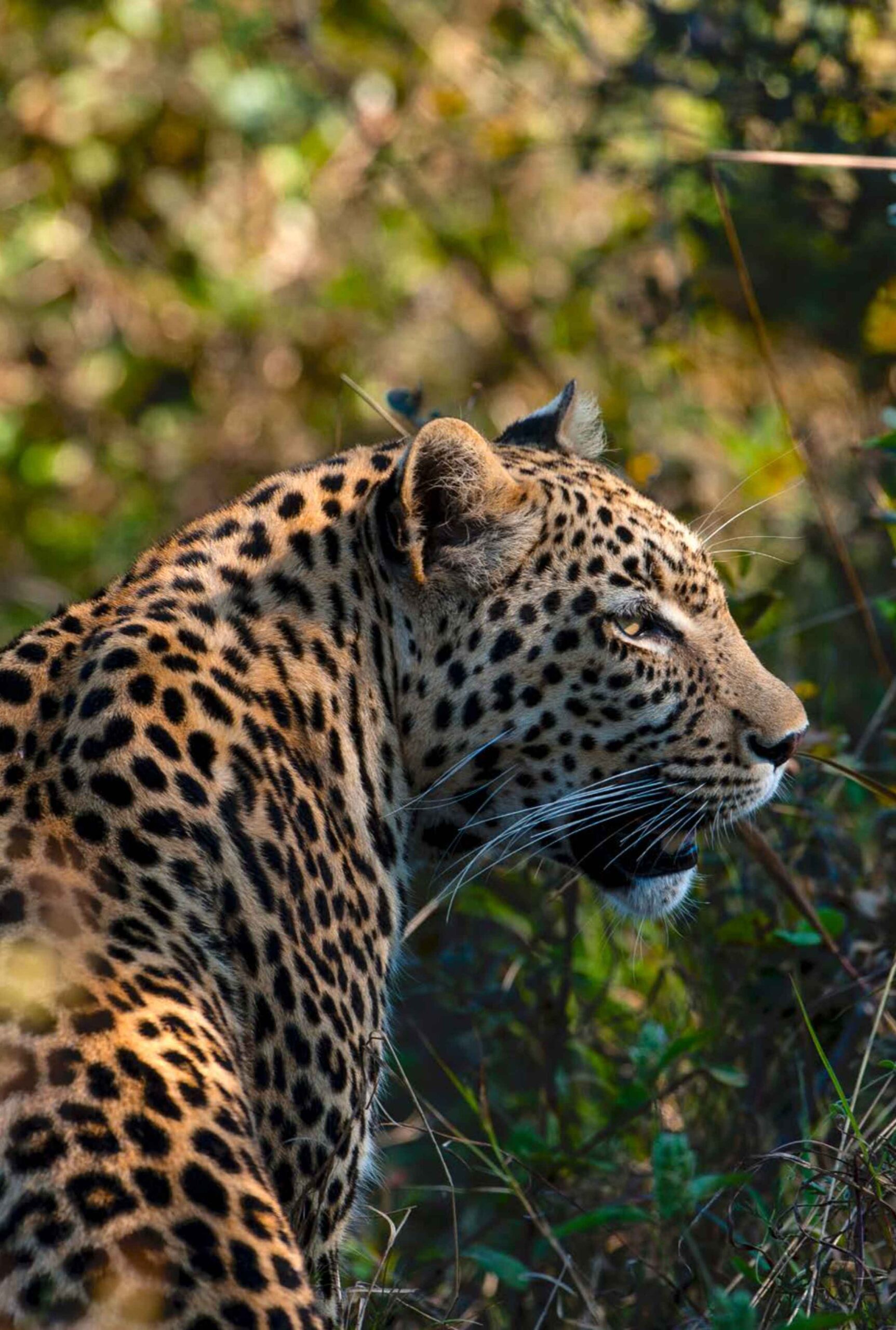
The luxury of time and space
Often overlooked by travellers in favour of more accessible safari countries like Kenya and South Africa, Botswana has been quietly capitalising on its seclusion to forge a reputation as an elite safari destination. With several boutique camps newly opened in 2023, and more planned this year – including Wilderness’s Tubu Tree and Mokete and Natural Selection’s Tawana Camp – safari operators are rushing to accommodate a surge in demand from people looking for a way to switch off from the bad news cycle and reconnect with nature.
“In Botswana, luxury is about time and space,” says Hilton Walker from Great Plains Conservation, which opened its new Sitatunga Private Island Camp last July. “Luxury is no longer solely about the thread count and suite’s appointments; it’s about those moments you take away with you.”
This sentiment is reflected in the design of the camps: small, intimate, and fully embedded in their surroundings with thatched roofs, wooden boardwalks and muted tones that feel less five-star hotel and more rustic treehouse. Many have only a handful of rooms, allowing for a true private, away-from-it-all experience; some are even available for exclusive hire, attracting family groups, yoga retreats or photography tours.
Hot tubs, gold taps and imported extravagances are out in Botswana. Here, you’re off-grid, in the heart of the bush, so everything is local, sustainable, solar powered and environmentally friendly. Most camps also work hard to support the surrounding communities and donate to local projects to ensure the impact they have is a positive one.
I miraculously transform from night owl to early bird, springing out of bed at 5am eager to catch the worm – or rather, some much larger animals.
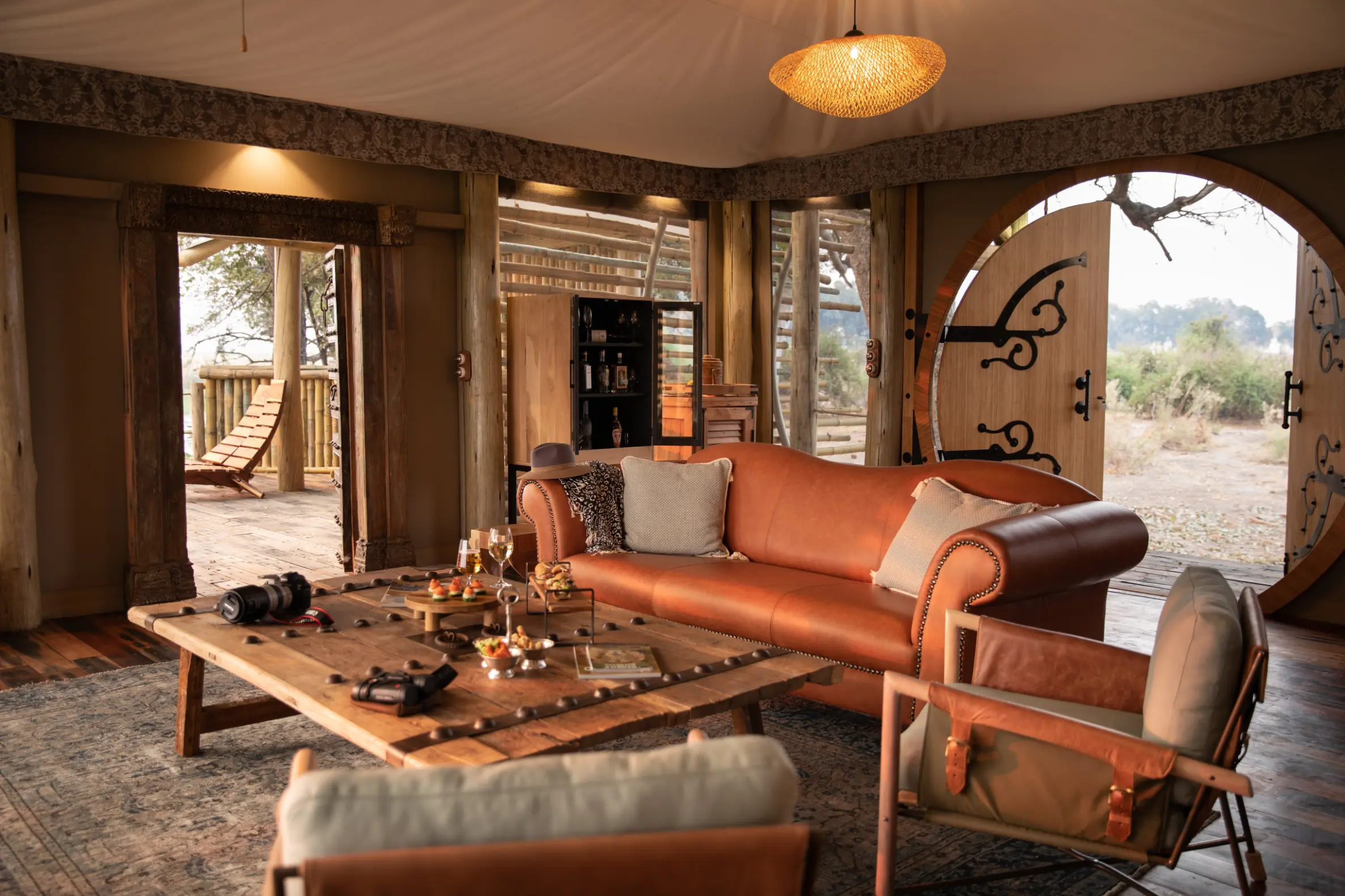
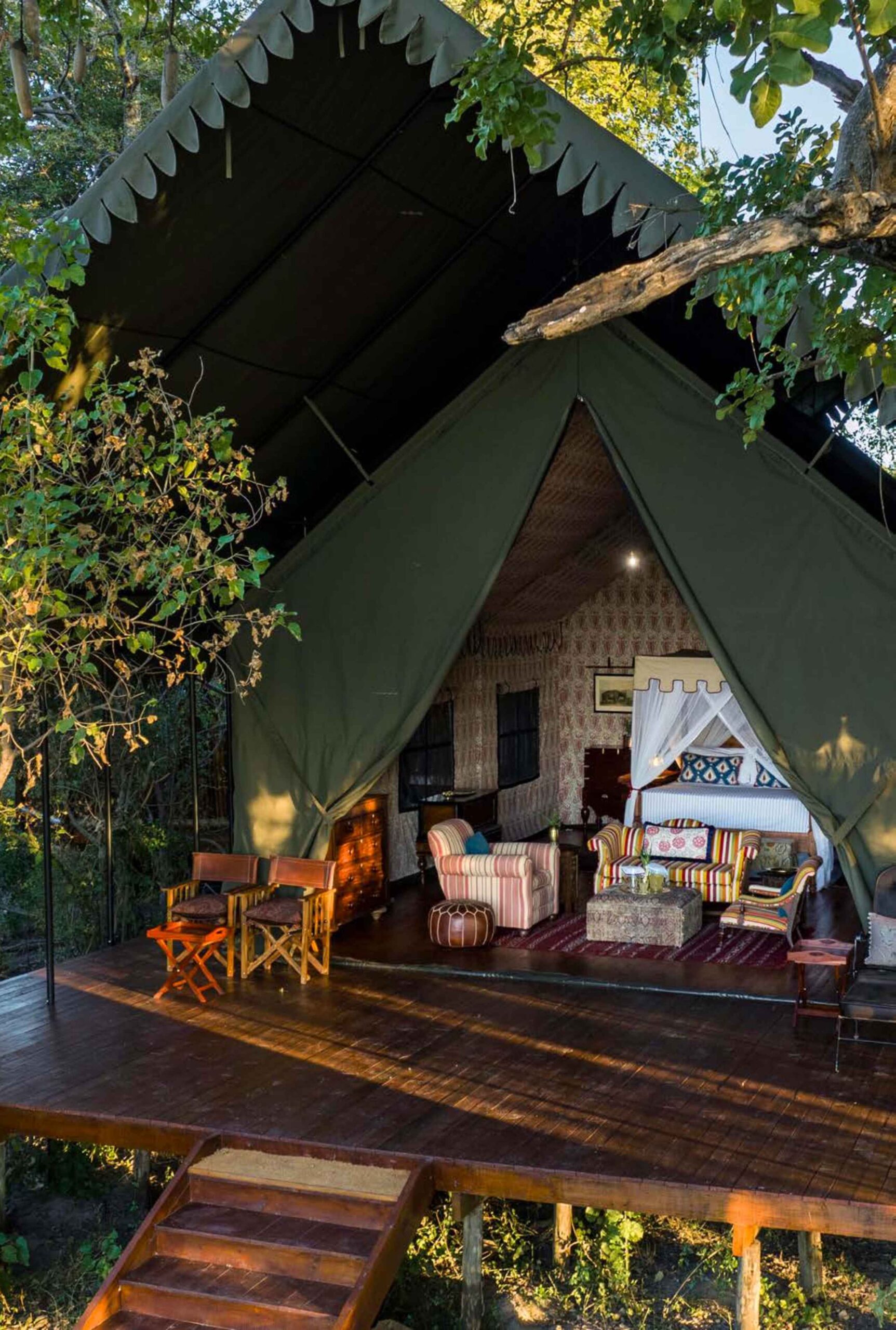
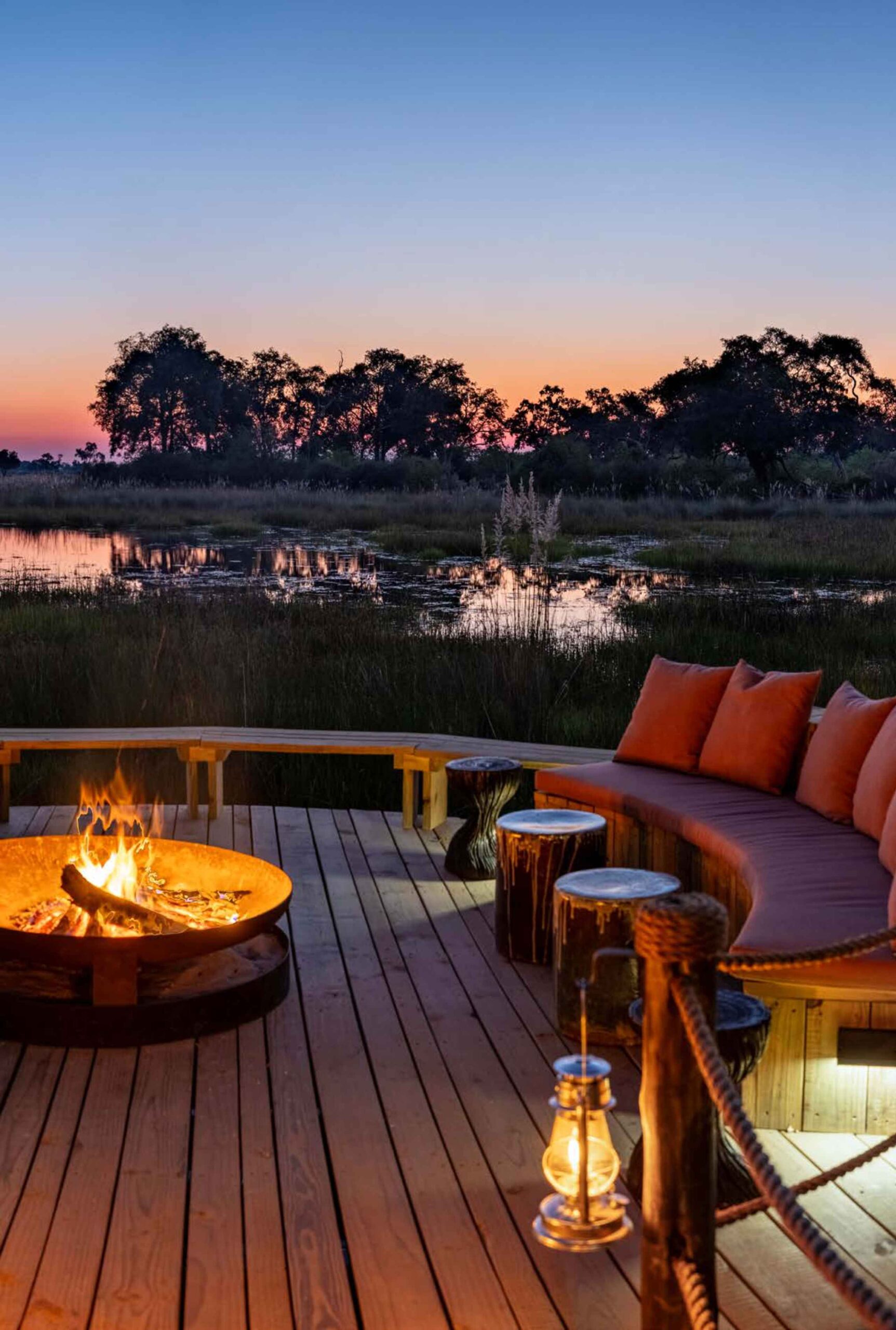
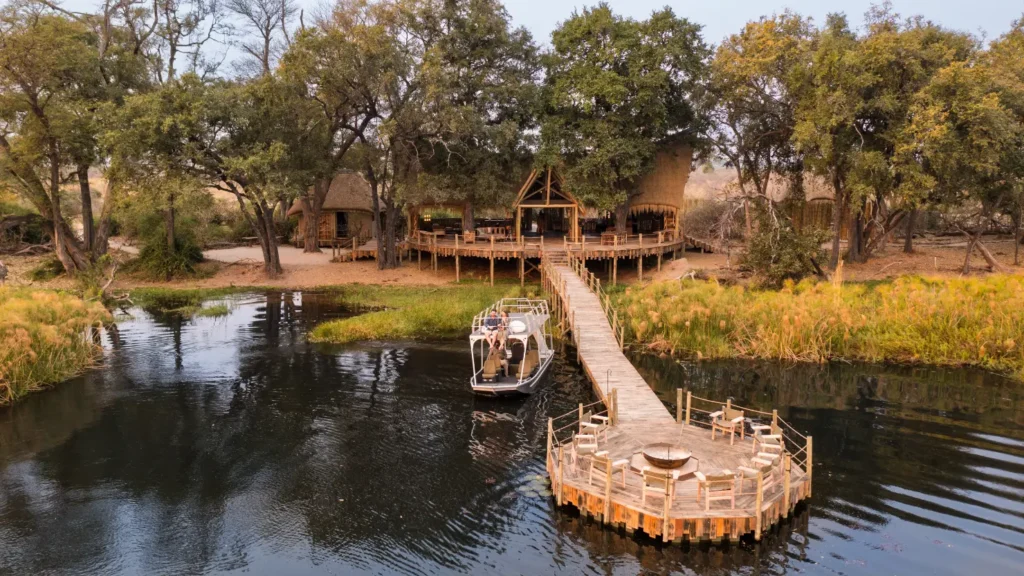
Eat, explore, repeat
But sustainable doesn’t mean uncomfortable – quite the opposite. I’m treated to four meals a day: an early breakfast of eggs and fruit to give me a boost for the morning game drive; a healthy lunch of rainbow-coloured salads; tea and cake before the afternoon activity; and a three-course dinner with wine, served by a joyful kitchen team who welcome us every evening with a chorus of traditional Botswana songs. And if I need a pick-me-up between meals, there are unlimited tea and cookies, an open bar, and cocktails served out in the bush as we watch the sun set in a blaze of gold and tangerine over a sparkling lagoon. Since going for a calorie-burning jog isn’t an option (I’m pretty sure I can’t outrun a lion), my shorts soon start to feel tight.
Days become an idyllic cycle of eating and exploring. We take a ride down one of the Delta’s many winding waterways in a mokoro – a traditional canoe – and spot malachite kingfishers and a tiny painted frog clinging to a papyrus stem. On a walking safari we learn that antelopes love to eat the pendulous fruit of the sausage tree, and that leopards sometimes lie in wait in the branches and drop on them from above (though despite wishing hard, I don’t get to witness this).
I experience the terrifying thrill of a doors-off helicopter flight, with nothing between me and the ground 300 metres below but my seatbelt and the steady hands of pilot, Scott. In a world where so much of the natural environment is being ploughed or paved, being able to marvel at this vast, unspoiled landscape from above makes me realise what a rare opportunity this is, and how important it is that we preserve these last remaining wild areas before they, too, are lost.
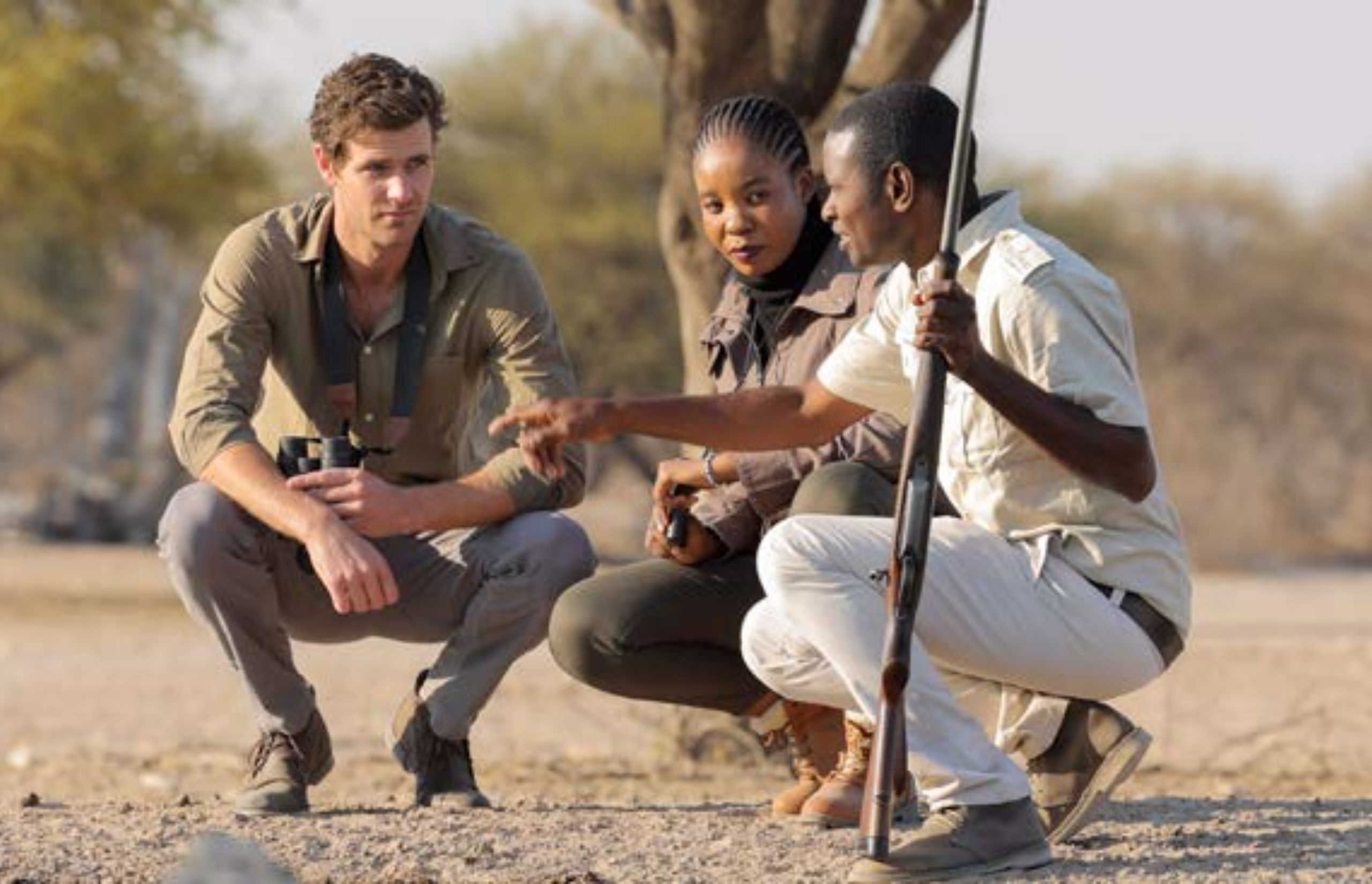
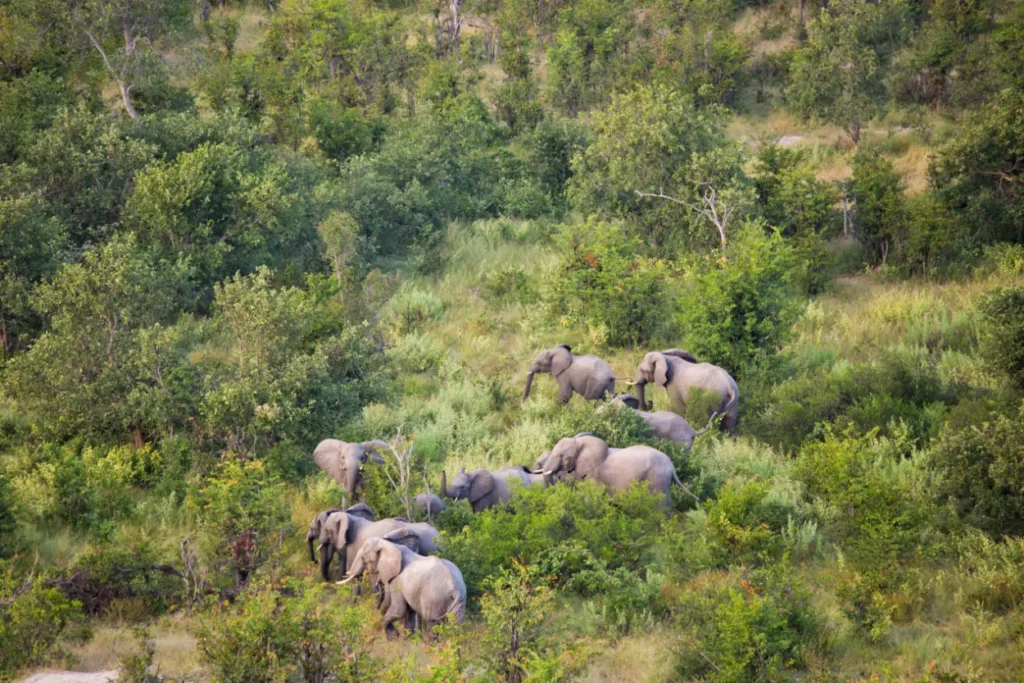
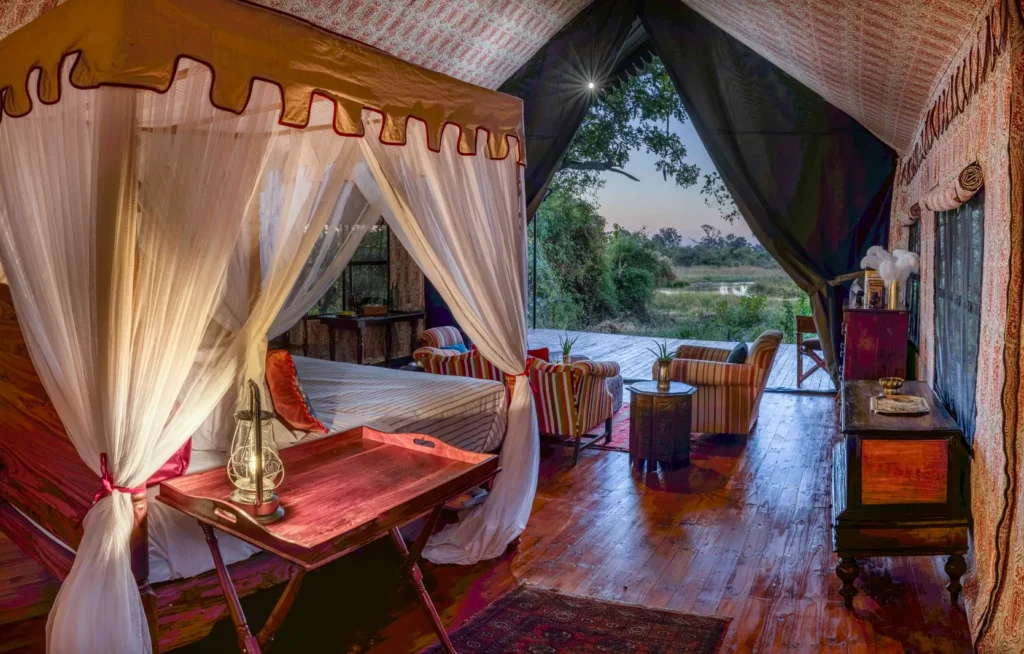
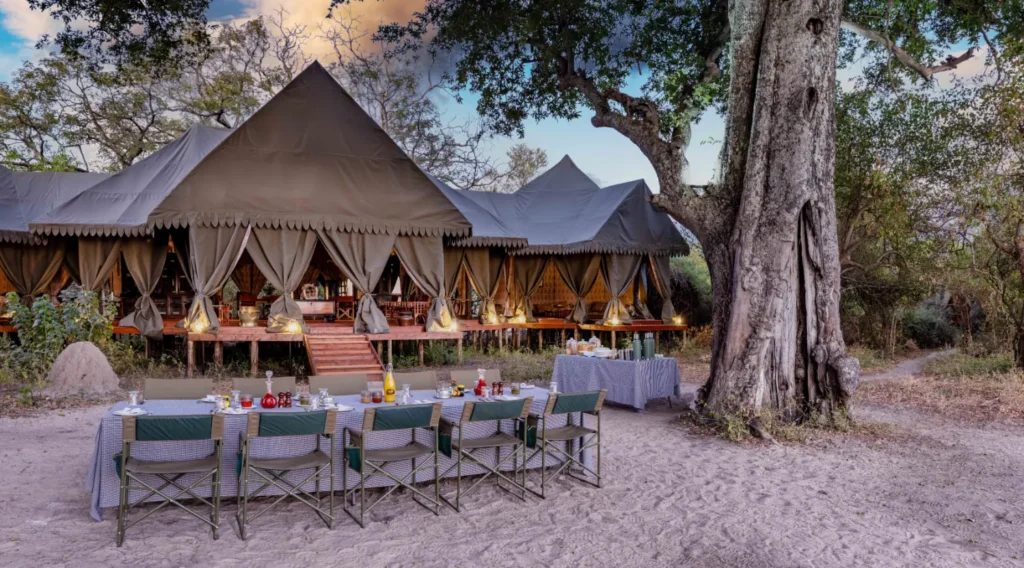
Journey notes
Singapore Airlines and Emirates offer flights from Australia via Singapore or Dubai to Johannesburg in South Africa; then there are frequent flights across the border to Maun for the Okavango Delta or Kasane for Chobe National Park.
You don’t need a visa if you’re a tourist visiting for up to 90 days.
Ker&Downey camps start from USD$650 (about AUD$980) per person per night, all inclusive.
Wilderness camps start from USD$900 (about AUD$1370) per person per night, all inclusive.
Great Plains’ Sitatunga Private Island starts from USD$1,848 (about AUD$2810) per person per night, all-inclusive.
While you’re here
Botswana is much more than the Okavango Delta. Don’t miss Chobe National Park, home to the world’s largest concentration of elephants, or the dramatic salt pans of Makgadikgadi National Park where you can spend the night sleeping under the stars.
Good to know
Botswana has wet and dry seasons. While many prefer to travel during the dry season between April and October, when wildlife congregates around the few remaining water sources, the wet or ‘green’ season between November and March brings vibrant colours, newborn baby animals, lower prices and fewer people.
Latest Articles
Don't miss the latest from Luxury Travel
